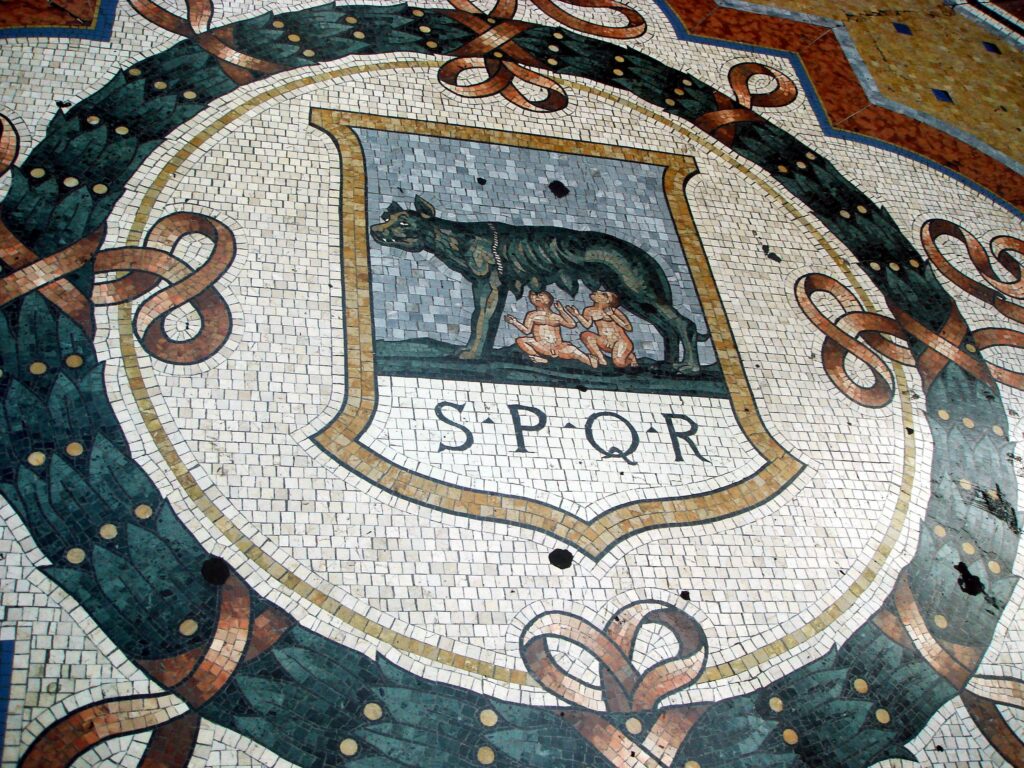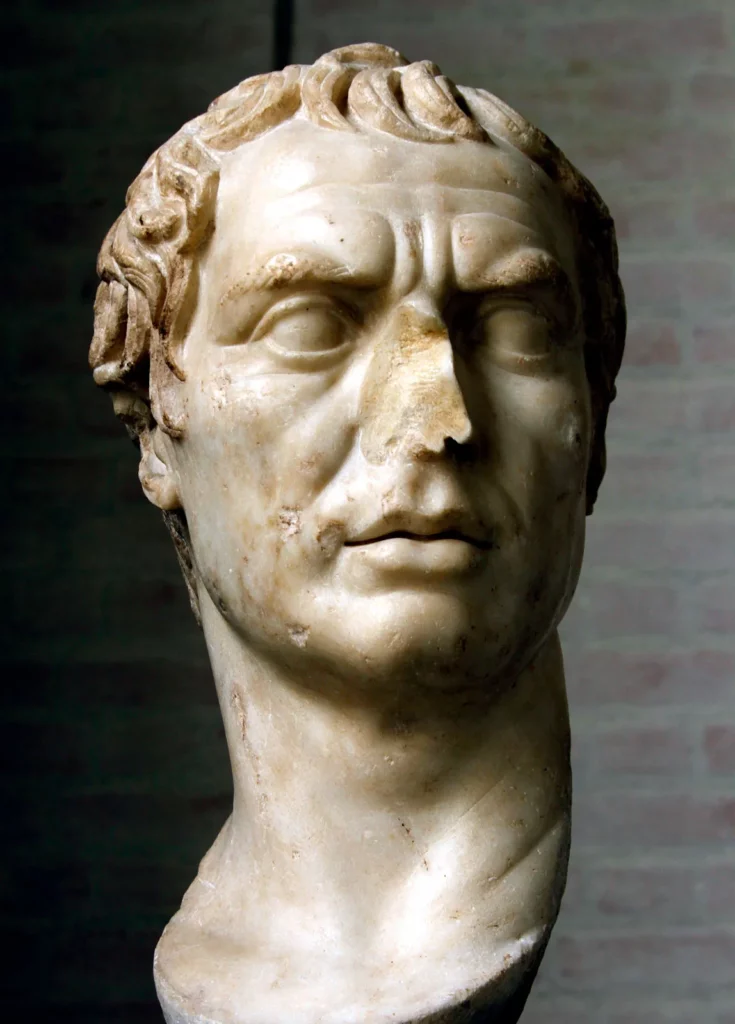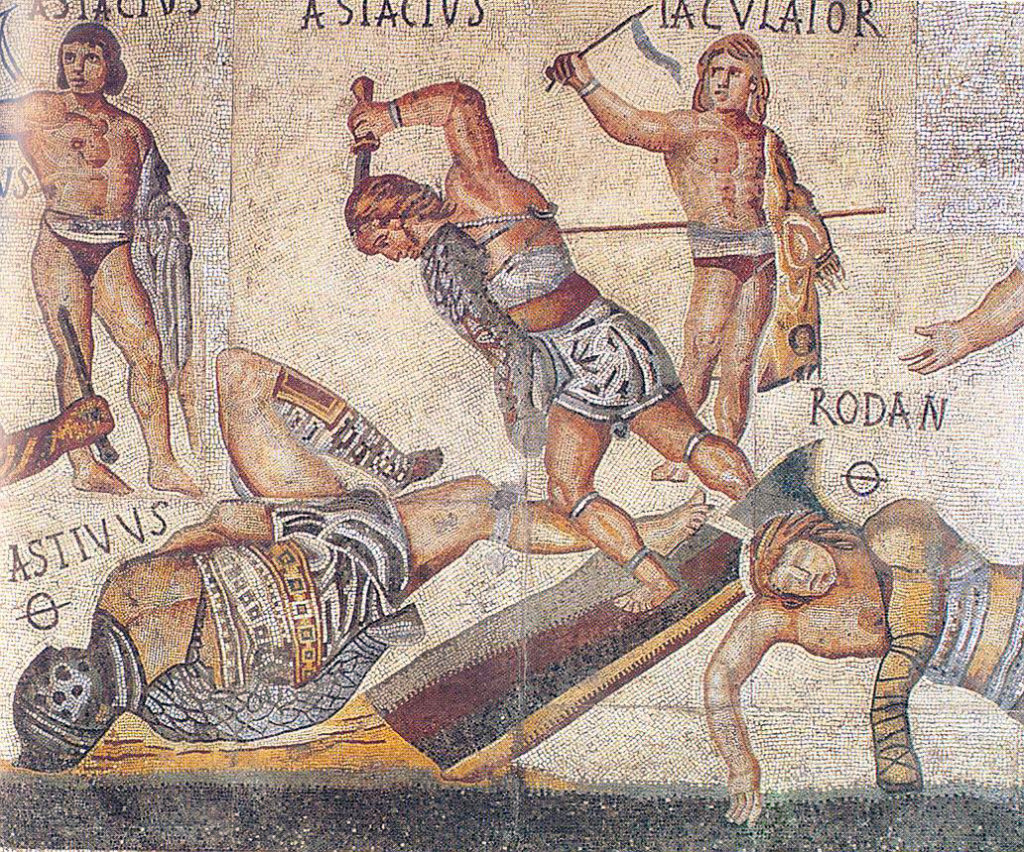When people think of ancient Rome, the acronym SPQR is often the first thing that comes to mind beyond the coliseum and gladiators.
You’ll find it plastered all over Roman buildings, adorning their battle standards, and gracing coinage, among dozens of other uses; it is near impossible to find a reminder of Roman times without it.
But what exactly does it mean, and why is it associated as the de facto motto of Rome, much like E Pluribus Unum is for the United States?

What Does SPQR Stand For?
The acronym SPQR is short for the Latin phrase “Senatus Populusque Romanus.” There are several translations of this phrase into English, depending on who you ask.
Some might say it means The Senate and the People of Rome, and others might say it’s a more formal translation of The Roman Senate and People.
Whatever translation you believe is more accurate, both express that the Roman Republic and, later Roman Empire comprised two equally essential bodies: the Roman Senate and its citizens, who entrusted them to make the right decisions for them.
When Did Rome Start Using SPQR?
While the Roman Republic came into existence around 509 BC, the first concrete appearances of SPQR in tangible artifacts are not dated until around 80 BC.
While there is debate on whether or not SPQR existed before 80 BC, historians generally accept that there was not. So why the symbol SPQR would appear around this time has a lot to do with what was going on during the dying days of the Roman Republic.
Optimates vs. Populares: The Beginning of Rome’s Woes
Without getting too much into a deep dive into several hundred years of Roman history, by the year 91 BC, there started to become a steep divide in the Republic.
Coined by German historian Theodor Mommsen in the mid-19th century, one can divide the Roman people into two camps: the optimates and the populares.
Though not observed during the time of political parties as the modern world would view them, these two distinct types of thought dominated the social and political discourse of the time.
According to optimates, power should remain vested in the Senate, and nothing could usurp them. Those following these beliefs felt that the Senators were elected for a reason and that the Roman citizenry should trust the political process they had built for themselves.
After all, it was their way of government they believed separated them from the barbarian tribes that surrounded the Republic’s borders.
On the other hand, the populares believed that the citizenry at large should have a greater voice than the Senate or at least have Senators that were more in tune with the needs of the common person.
Though not the primary grievance of the populares, one of the constant rallying cries was the grain distributions advocated by politicians such as Gaius Gracchus in 123 BC.
Of course, there were many other issues that the populares disagreed with the optimates about. Still, traditionally grain distributions to the masses were a chief complaint on the number of people eligible, the quantity, quality, and price.
Adding Fuel to the Fire: The Social War
From 123 BC to about 91 BC, the divide between the optimates and populares continued to grow among the Roman population and other Latin peoples.
Only some people were considered full Roman citizens despite controlling the entirety of the Italian peninsula by 91 BC. During the Samnite wars, the early Republic decided to confer Roman citizenship on those tribes who aided them or surrendered without a fight.
Those people that opposed them were not granted citizenship. Over the next several hundred years, those Italian allies not considered full citizens were tired of the tax burden and manpower they provided to the Roman army with little to show for it.
Chief among their proponents was a statesman named Marcus Livius Drusus. Drusus advocated for more rights for Latin peoples, if not outright citizenship. Though never proven, it is highly suspected that an agent of Rome assassinated him. Upon his death, the various Italian allies started to revolt, and the Social War started.
During the Social War, two generals rose to prominence. First was the famed General Gaius Marius, and the second was his fromer subordinate Sulla.
Though getting off to a rocky start, the Roman army eventually decimated most of the rebelling tribes. However, before the war concluded, troubles were brewing in Rome’s eastern provinces.
The First Mithridatic War and Sulla’s Civil War
While Rome was embroiled in a war at home, King Mithridates VI of Pontus invaded Asia Minor. With his armies sweeping away light Roman defenses, a new army was raised to fight him.
By 87 BC, the Social War was under control, and Sulla was given command of this new army. This infuriated Marius, and strip Sulla of his command. Finally, however, Sulla marched his army on Rome. Now a general without an army, Marius was banished while Sulla went off to fight Mithridates.
During Sulla’s absence, Marius decided to make his comeback. Raising a new army of his own, he marched on Rome himself and took it. Marius quickly rallied the support of fellow populares and won an unprecedented seventh consulship. Upon hearing of what Marius had done, Sulla landed his army on the Italian peninsula to retake Rome.
Like the Social war, Sulla’s civil war was a conflict along party lines: optimates vs. populares. Sulla was a staunch optimate, and after outmaneuvering Marius’ armies, he resoundingly defeated the populares army at the Battle of the Colline Gate. With his victory secured, Rome was finally at peace for the first time in nearly a decade.
Why Sulla Started Using SPQR
With Sulla now as dictator of Rome, he first went about solidifying his power. Then, after sentencing thousands of his enemies to be executed, he realized that his bloodlust would have to end eventually to restore order to the Republic.
During Sulla’s time as a dictator, the phrase SPQR starts to pop up everywhere. Why Sulla would choose then to do it and the phraseology he used is a testament to what he was trying to accomplish.

Because of the long-standing disputes between the populares and the optimates, Sulla likely wanted to show unity between the two factions.
The optimates favored a strong senate, while the populares favored a strong citizenry. SPQR shows that both these bodies are permanently linked as both are vital to the government of Rome.
Including the term “People of Rome” would have boded well with the Italian people, now freshly minted Roman citizens. During Sulla’s reign, he extended Roman citizenship to all peoples of the Italian peninsula, including the tribes who had rebelled.
By putting the term “People of Rome” in the motto, Sulla signified that these people were just as Roman as anyone else who had been citizens for centuries by this point. Placing the phrase on coins, buildings, standards, and all forms of documents only belabored this point.
The Legacy of SPQR
Even after Sulla resigned from his dictatorship, the phrase SPQR remained an endearing symbol of Rome. Once the Republic transitioned to an empire, the phrase was still used even though the Senate had just a fraction of the political authority it had during the Republic.
During the Roman empire, it was still seen as an important symbol of Roman history, hearkening back to its early days.
Even though SPQR might seem like a simple phrase, there is a ton of history behind the timing of its introduction, and Sulla put much thought into its word choice. Originally used as a rallying cry to help unite the different peoples and factions of the Roman Republic, it morphed into an enduring symbol of Rome.

